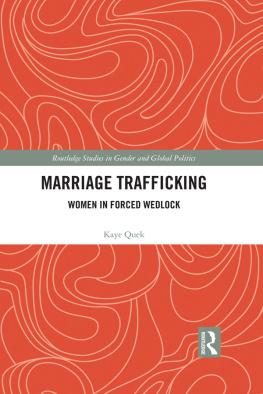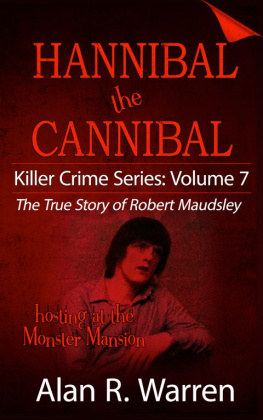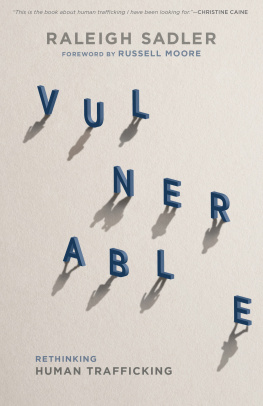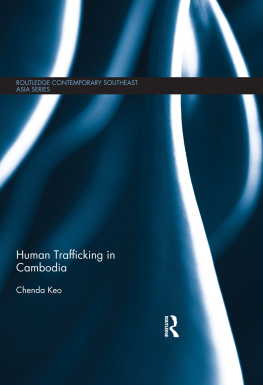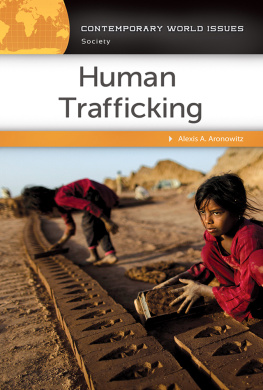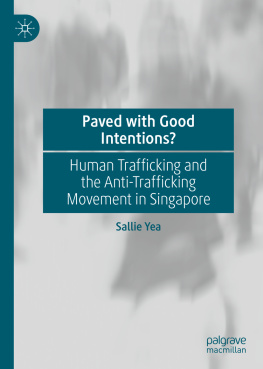Marriage Trafficking
This book examines the traffic in women for marriage, a phenomenon that has been largely overlooked in international efforts to address the problem of human trafficking. In contrast to current international and state-based approaches to trafficking, which tend to focus on sex trafficking and trafficking for forced labour, this book seeks to establish how marriage as an institution is often implicated in the occurrence of trafficking in women.
The book aims firstly to establish why marriage has tended not to be included in dominant conceptions of trafficking in persons and secondly to determine whether certain types of marriage may constitute cases of human trafficking, in and of themselves. Through the use of case studies on forced marriage, mail-order bride (MOB) marriage and Fundamentalist Mormon polygamy, this book demonstrates that certain kinds of marriage may in fact constitute situations of trafficking in persons and together form the under-recognised phenomenon of marriage trafficking. In addition, the book offers a new perspective on the types of harm involved in trafficking in women by developing a framework for identifying the particular abuses characteristic to marriage trafficking. It argues that the traffic in women for marriage cannot be understood merely as a subset of sex trafficking or trafficking for forced labour, but rather constitutes a distinctive form of trafficking in its own right.
This book will be of great interest to scholars and postgraduates working in the fields of human rights theory and institutions, political science, international law, transnational crime, trafficking in persons and feminist political theory.
Dr Kaye Quek is a Lecturer in Global Studies at RMIT University, Australia.
Routledge Studies in Gender and Global Politics
Series Editor: Laura J. Shepherd
UNSW Australia
This series aims to publish books that work with, and through, feminist insights on global politics, and illuminate the ways in which gender functions not just as a marker of identity but also as a constitutive logic in global political practices. The series welcomes scholarship on any aspect of global political practices, broadly conceived, that pays attention to the ways in which gender is central to, (re)produced in, and is productive of, such practices.
There is growing recognition both within the academy and in global political institutions that gender matters in and to the practices of global politics. From the governance of peace and security, to the provision of funds for development initiatives, via transnational advocacy networks linked through strategic engagement with new forms of media, these processes have a gendered dimension that is made visible through empirically grounded and theoretically sophisticated feminist work.
Masculinity and New War
The Gendered Dynamics of Contemporary Armed Conflict
David Duriesmith
Why Women Rebel
Understanding Womens Participation in Armed Rebel Groups
Alexis Leanna Henshaw
Feminism, Prostitution and the State
The Politics of Neo-Abolitionism
Edited by Eils Ward & Gillian Wylie
Gender, Governance and Feminist Analysis
Missing in Action?
Edited by Christine Hudson, Malin Rnnblom and Katherine Teghtsoonian
Marriage Trafficking
Women in Forced Wedlock
Kaye Quek
First published 2018
by Routledge
2 Park Square, Milton Park, Abingdon, Oxon OX14 4RN
and by Routledge
711 Third Avenue, New York, NY 10017
Routledge is an imprint of the Taylor & Francis Group, an informa business
2018 Kaye Quek
The right of Kaye Quek to be identified as author of this work has been asserted by her in accordance with sections 77 and 78 of the Copyright, Designs and Patents Act 1988.
All rights reserved. No part of this book may be reprinted or reproduced or utilised in any form or by any electronic, mechanical, or other means, now known or hereafter invented, including photocopying and recording, or in any information storage or retrieval system, without permission in writing from the publishers.
Trademark notice: Product or corporate names may be trademarks or registered trademarks, and are used only for identification and explanation without intent to infringe.
British Library Cataloguing-in-Publication Data
A catalogue record for this book is available from the British Library
Library of Congress Cataloging-in-Publication Data
Names: Quek, Kaye, author.
Title: Marriage trafficking : women in forced wedlock / Kaye Quek.
Description: 1 Edition. | New York : Routledge, 2018. | Series: Routledge
studies in gender and global politics | Includes bibliographical references
and index.
Identifiers: LCCN 2017052885 | ISBN 9781138650763 (hardback) |
ISBN 9781315620138 (ebook)
Subjects: LCSH: Forced marriage. | WomenCrimes against. | Prostitution.
Classification: LCC HQ503 .Q45 2018 | DDC 306.84dc23
LC record available at https://lccn.loc.gov/2017052885
ISBN: 978-1-138-65076-3 (hbk)
ISBN: 978-1-315-62013-8 (ebk)
Typeset in Times New Roman
by Apex CoVantage, LLC
I am greatly indebted to a number of people without whom this work would not have been possible. In particular, I would like to thank Sheila Jeffreys for her guidance of this project through its early stages. My heartfelt thanks go to my dear friend Meagan Tyler, who read numerous drafts and gave much time and energy to this work over many years. I am very grateful for the thoughtful comments provided by Laura Shepherd and the books anonymous reviewers, as well as for the support provided by the team at Taylor and Francis, especially Nicola Parkin and Emily Ross, whose patience and guidance I will not soon forget. I would also like to thank my colleagues at the School of Global, Urban and Social Studies at RMIT University for their encouragement and for providing a truly supportive work environment.
Most especially, I would like to express my gratitude to my partner, Maurice, and our daughter, Iris, for their love, laughter and understanding, particularly as I worked towards finishing this book. I am also deeply grateful to my parents, who support me at every turn and, without hesitation, at the most difficult times. Finally, I would like to thank the growing and enthusiastic feminist community in Melbourne (including Kathy and Meagan), which constantly reminds me that working towards an end to the sexual exploitation of women, though hard, is a great deal easier when in the company of strong and determined women.
The problem that has a name but lacks theorisation
In a small number of instances, the international rights community has recently begun to recognise a new type of trafficking in persons in the form of marriage trafficking. Two examples of this trend include publications by the United Nations Office on Drugs and Crime (UNODC) and the United Nations (UN) Special Rapporteur on human trafficking. The UNODC the UN branch charged with monitoring the global incidence of trafficking in persons includes a short section on trafficking for marriage in its 2016 Global Report on Trafficking in Persons . The discussion on marriage appears in a segment on other purposes for which trafficking may be carried out besides the more commonly recognised abuses of sexual exploitation and forced labour (UNODC 2016, 32). Almost a decade earlier, the UN Special Rapporteur on trafficking published a thematic study on the same phenomenon, focusing in particular on the custom of forced marriage as an act or element of trafficking in persons (Huda 2007, 2). Indeed, since the early 2000s, international human rights organisations have produced numerous reports observing an increasing number of practices involving the sale and trading of women in marriage in countries across the world (e.g. Human Rights Watch 2002; IRIN 2008 a, 2008b, 2009; World Vision 2008), with a handful of works specifically linking these situations to human trafficking (e.g. ILO 2002; Muico 2005). In these few examples, however, the problem of marriage trafficking is given a name but little else. The particular harms and characteristics involved when marriage is the purpose or outcome of trafficking in persons are not articulated in detail, and there is little in terms of a conceptual or theoretical framework that explains how marriage trafficking relates to, overlaps with, and differs from more prevalent forms of human trafficking such as sex trafficking and trafficking for forced labour.

